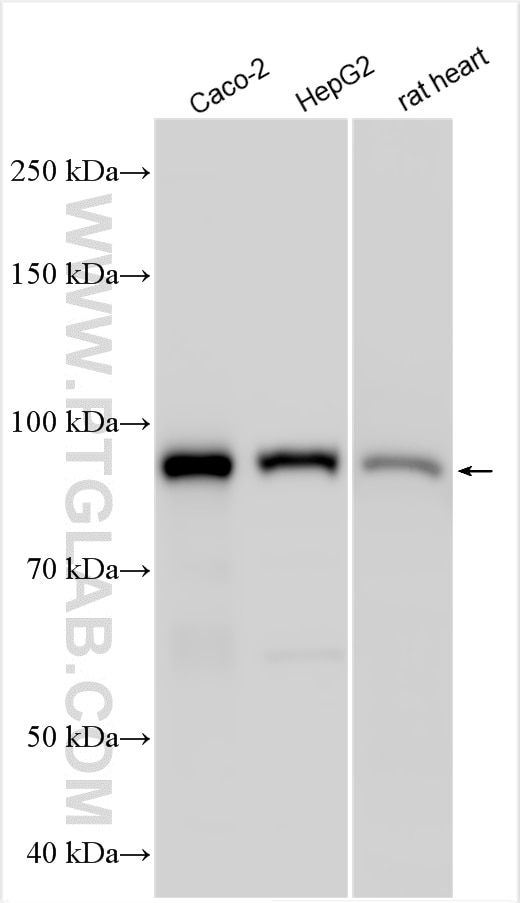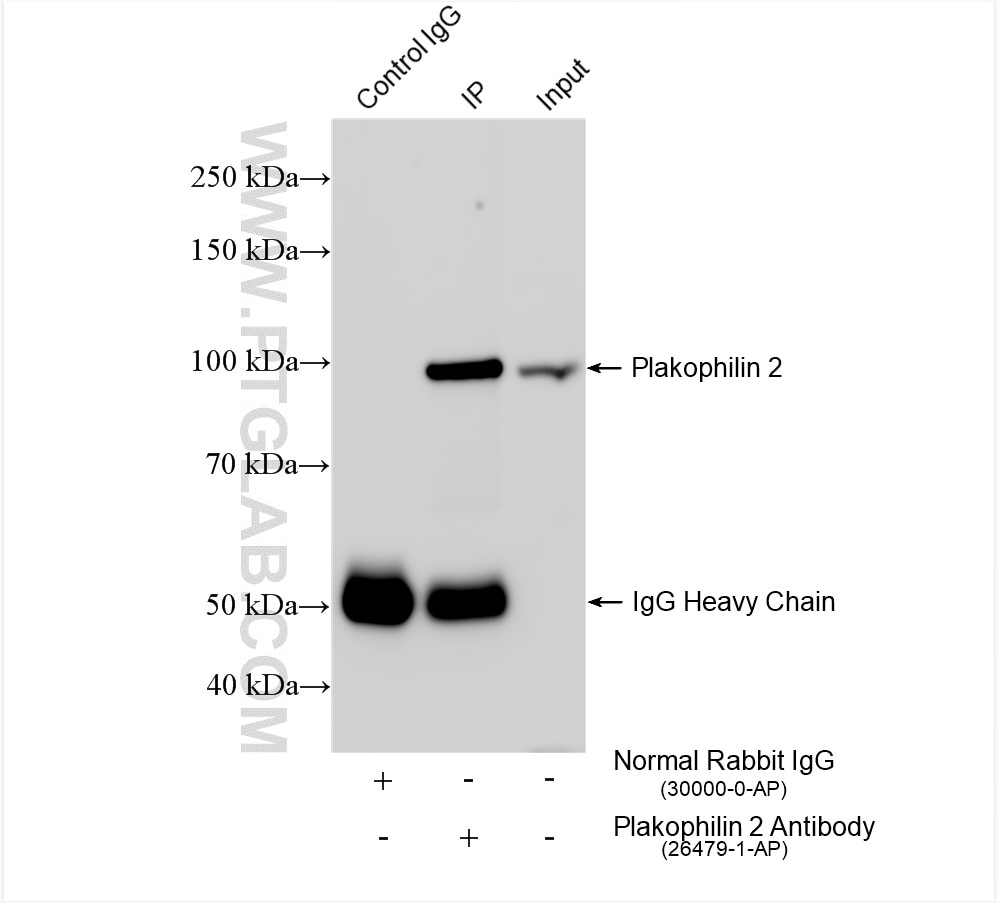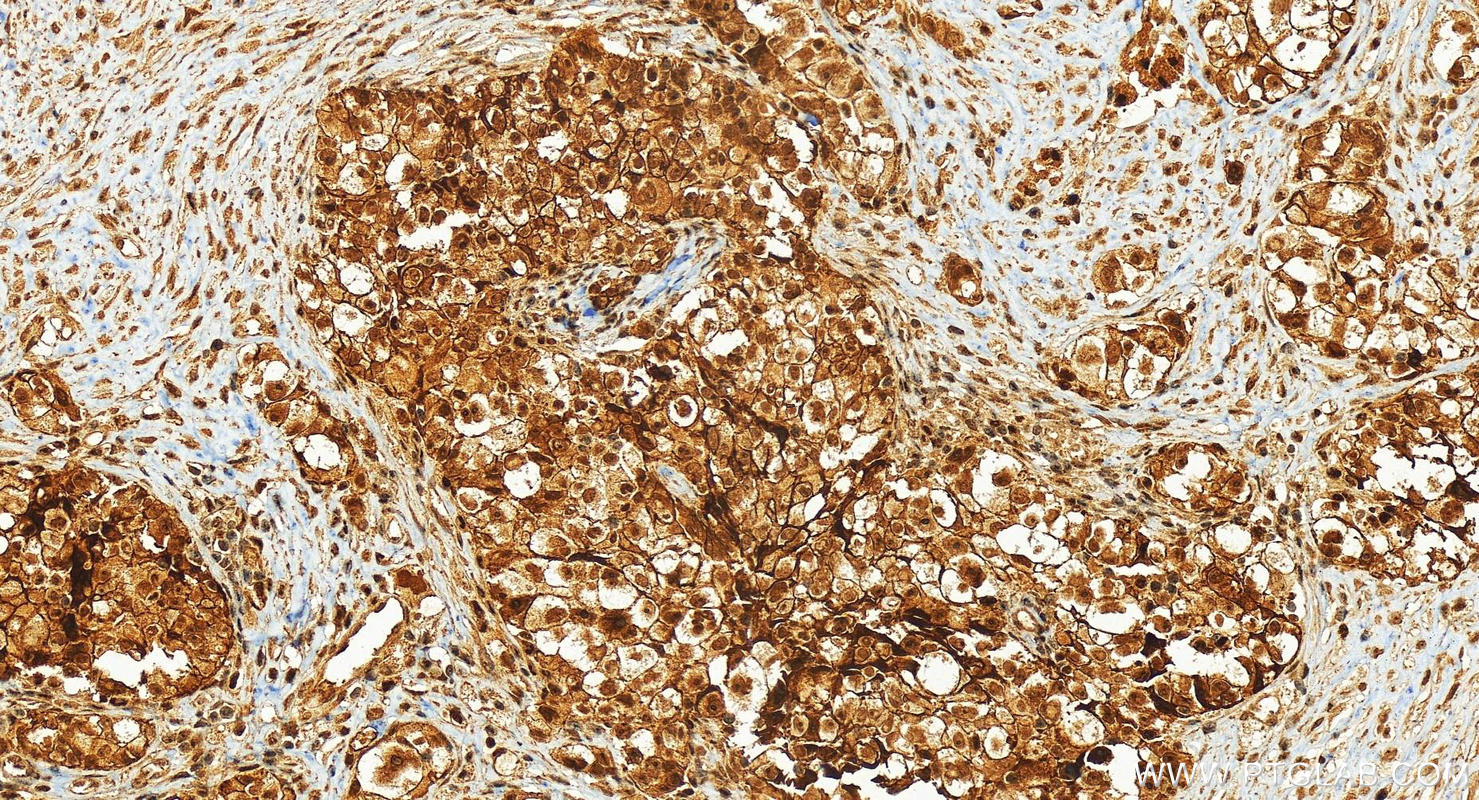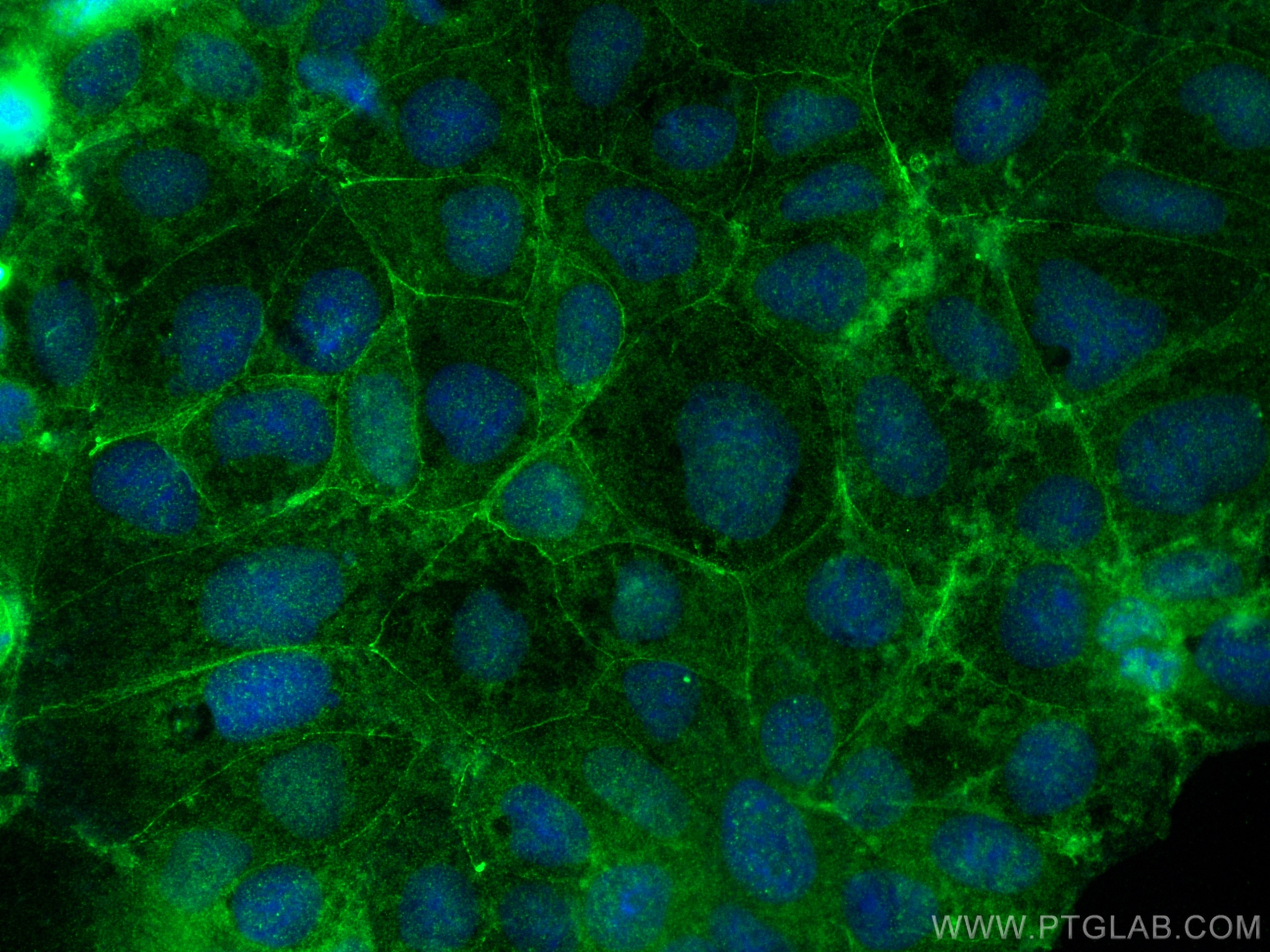Tested Applications
| Positive WB detected in | Caco-2 cells, HepG2 cells, rat heart tissue |
| Positive IP detected in | HepG2 cells |
| Positive IHC detected in | human ovary cancer tissue Note: suggested antigen retrieval with TE buffer pH 9.0; (*) Alternatively, antigen retrieval may be performed with citrate buffer pH 6.0 |
| Positive IF/ICC detected in | Caco-2 cells |
Recommended dilution
| Application | Dilution |
|---|---|
| Western Blot (WB) | WB : 1:1000-1:6000 |
| Immunoprecipitation (IP) | IP : 0.5-4.0 ug for 1.0-3.0 mg of total protein lysate |
| Immunohistochemistry (IHC) | IHC : 1:200-1:800 |
| Immunofluorescence (IF)/ICC | IF/ICC : 1:200-1:800 |
| It is recommended that this reagent should be titrated in each testing system to obtain optimal results. | |
| Sample-dependent, Check data in validation data gallery. | |
Published Applications
| WB | See 2 publications below |
| IF | See 1 publications below |
Product Information
26479-1-AP targets Plakophilin 2 in WB, IHC, IF/ICC, IP, ELISA applications and shows reactivity with human, rat samples.
| Tested Reactivity | human, rat |
| Cited Reactivity | human, mouse |
| Host / Isotype | Rabbit / IgG |
| Class | Polyclonal |
| Type | Antibody |
| Immunogen |
CatNo: Ag24155 Product name: Recombinant human PKP2 protein Source: e coli.-derived, PGEX-4T Tag: GST Domain: 1-351 aa of BC094762 Sequence: MAAPGAPAEYGYIRTVLGQQILGQLDSSSLALPSEAKLKLAGSSGRGGQTVKSLRIQEQVQQTLARKGRSSVGNGNLHRTSSVPEYVYNLHLVENDFVGGRSPVPKTYDMLKAGTTATYEGRWGRGTAQYSSQKSVEERSLRHPLRRLEISPDSSPERAHYTHSDYQYSQRSQAGHTLHHQESRRAALLVPPRYARSEIVGVSRAGTTSRQRHFDTYHRQYQHGSVSDTVFDSIPANPALLTYPRPGTSRSMGNLLEKENYLTAGLTVGQVRPLVPLQPVTQNRASRSSWHQSSFHSTRTLREAGPSVAVDSSGRRAHLTVGQAAAGGSGNLLTERSTFTDSQLGNADMEM Predict reactive species |
| Full Name | plakophilin 2 |
| Calculated Molecular Weight | 837 aa, 93 kDa |
| Observed Molecular Weight | 90-100 kDa |
| GenBank Accession Number | BC094762 |
| Gene Symbol | Plakophilin 2 |
| Gene ID (NCBI) | 5318 |
| RRID | AB_3669539 |
| Conjugate | Unconjugated |
| Form | Liquid |
| Purification Method | Antigen affinity purification |
| UNIPROT ID | Q99959 |
| Storage Buffer | PBS with 0.02% sodium azide and 50% glycerol, pH 7.3. |
| Storage Conditions | Store at -20°C. Stable for one year after shipment. Aliquoting is unnecessary for -20oC storage. 20ul sizes contain 0.1% BSA. |
Background Information
Plakophilin 2 also known as PKP2, belongs to the beta-catenin family. Plakophilin proteins contain numerous armadillo repeats, localize to cell desmosomes and nuclei, and participate in linking cadherins to intermediate filaments in the cytoskeleton (PMID: 10828611). Mutations in PKP2 are associated with Arrhythmogenic right ventricular dysplasia, familial, 9 (ARVD9)(PMID: 15489853).
Protocols
| Product Specific Protocols | |
|---|---|
| IF protocol for Plakophilin 2 antibody 26479-1-AP | Download protocol |
| IHC protocol for Plakophilin 2 antibody 26479-1-AP | Download protocol |
| IP protocol for Plakophilin 2 antibody 26479-1-AP | Download protocol |
| WB protocol for Plakophilin 2 antibody 26479-1-AP | Download protocol |
| Standard Protocols | |
|---|---|
| Click here to view our Standard Protocols |
Publications
| Species | Application | Title |
|---|---|---|
J Nanobiotechnology ZNPs reduce epidermal mechanical strain resistance by promoting desmosomal cadherin endocytosis via mTORC1-TFEB-BLOC1S3 axis | ||
J Neurooncol The effects of BMP2 and the mechanisms involved in the invasion and angiogenesis of IDH1 mutant glioma cells |










